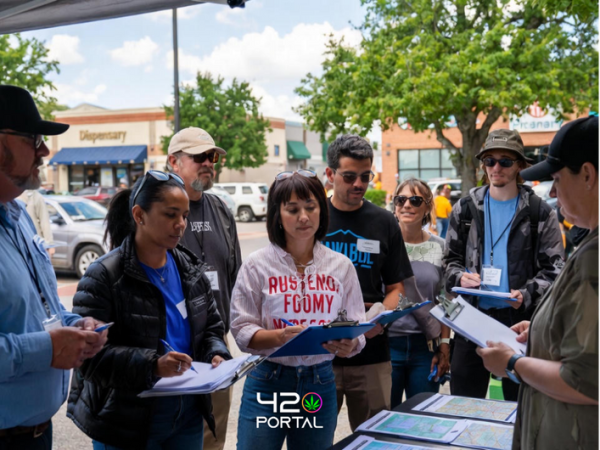Oklahoma Recreational Marijuana Push Stalls as Signature Drive Falls Short

11/06/2025
Oklahoma's push for recreational marijuana legalization has hit a significant roadblock with the failure of a key ballot initiative. State Question 837, aimed at allowing adults to possess and use cannabis for non-medical purposes, will not appear on upcoming ballots after advocates failed to gather the required number of signatures. The initiative sought to expand the state's existing medical marijuana framework by permitting recreational sales, cultivation, and consumption under regulated conditions.
To qualify for the ballot, proponents needed to collect at least 173,000 valid signatures from registered voters across the state. The group leading the effort, Oklahomans for Responsible Cannabis Action, organized petition drives at over 500 locations across the state, including community events, dispensaries, and public gatherings. Despite these widespread campaigns, the total fell short of the threshold, preventing the measure from advancing to a public vote.
A contributing factor to this outcome stems from recent legislative changes affecting the petition process. Senate Bill 1027 introduced new restrictions on signature collection, capping the number of signatures that can be gathered from any single county at 20.8 percent of the statewide total. This rule aims to ensure broader geographic representation in ballot initiatives, but critics argue it complicates efforts for issues like cannabis reform, which often draw stronger support in urban areas. By limiting contributions from populous counties, the bill may have hindered the group's ability to meet the minimum efficiently.
Oklahoma remains one of the states with a robust medical marijuana program, where licensed patients can access cannabis products through dispensaries. However, recreational use is still prohibited, with possession of small amounts classified as a misdemeanor punishable by fines or jail time. Supporters of legalization highlight potential economic benefits, such as tax revenue for education and public services, as well as reduced strain on the criminal justice system from minor drug offenses.
Opponents, including law enforcement groups and conservative organizations, express concerns over increased impaired driving, youth access, and public health risks associated with wider availability. The debate underscores a divide in public opinion, with polls showing growing acceptance of recreational cannabis nationwide, though Oklahoma's conservative leanings have historically favored stricter controls.
Reference
To qualify for the ballot, proponents needed to collect at least 173,000 valid signatures from registered voters across the state. The group leading the effort, Oklahomans for Responsible Cannabis Action, organized petition drives at over 500 locations across the state, including community events, dispensaries, and public gatherings. Despite these widespread campaigns, the total fell short of the threshold, preventing the measure from advancing to a public vote.
A contributing factor to this outcome stems from recent legislative changes affecting the petition process. Senate Bill 1027 introduced new restrictions on signature collection, capping the number of signatures that can be gathered from any single county at 20.8 percent of the statewide total. This rule aims to ensure broader geographic representation in ballot initiatives, but critics argue it complicates efforts for issues like cannabis reform, which often draw stronger support in urban areas. By limiting contributions from populous counties, the bill may have hindered the group's ability to meet the minimum efficiently.
Oklahoma remains one of the states with a robust medical marijuana program, where licensed patients can access cannabis products through dispensaries. However, recreational use is still prohibited, with possession of small amounts classified as a misdemeanor punishable by fines or jail time. Supporters of legalization highlight potential economic benefits, such as tax revenue for education and public services, as well as reduced strain on the criminal justice system from minor drug offenses.
Opponents, including law enforcement groups and conservative organizations, express concerns over increased impaired driving, youth access, and public health risks associated with wider availability. The debate underscores a divide in public opinion, with polls showing growing acceptance of recreational cannabis nationwide, though Oklahoma's conservative leanings have historically favored stricter controls.
Reference







